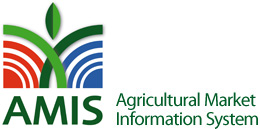AGRICULTURE: ISSUES
Food security
The WTO Agreement on Agriculture explicitly recognises the need to take account of food security — both in the commitments that WTO members have made to date, which are monitored in the Committee on Agriculture, and in ongoing negotiations.
Trade can improve food availability where it is scarce — and can also improve economic access to food by creating jobs and raising incomes. A more predictable trading system can also improve stability, another key component of food security.
See also
-
Sanitary and phytosanitary measures
i.e. food safety and animal-plant health -
Standards and Trade Development Facility
Helping developing countries meet food and health standards
News
Agriculture negotiations
The issue of food security is at the heart of WTO members' ongoing negotiations on agriculture, where it is relevant to all negotiating topics. Over the last decade, these talks have delivered a series of outcomes in areas related to food security.
Food security in the MC12 Geneva Package
WTO members agreed two outcomes on trade and food security as part of the “Geneva package” of agreements concluded at the 12th Ministerial Conference (MC12) in June 2022.
Trade ministers agreed a decision exempting food from export restrictions when procured for humanitarian purposes by the World Food Programme (WFP). They also agreed on a Ministerial Declaration on the Emergency Response to Food Insecurity , the first such declaration on this topic adopted by trade ministers at the WTO. In line with this declaration, WTO members established a work programme on food security for LDCs and NFIDCs at the Committee on Agriculture in November 2022.
Ending agricultural export subsidies
At the Nairobi Ministerial Conference in 2015, trade ministers adopted a historic decision abolishing agricultural export subsidies and setting new rules for other forms of farm export support. The decision contributed to progress on Sustainable Development Goal 2.b, which commits governments to “correct and prevent trade restrictions and distortions in world agricultural markets” as part of their efforts to end hunger, achieve food security and improved nutrition, and promote sustainable agriculture.
Public stockholding for food security purposes
Public stockholding programmes are used by some governments to purchase, stockpile and distribute food to people in need. While food security is a legitimate policy objective, some stockholding programmes are considered to distort trade when they involve purchases from farmers at prices fixed by the governments, known as “administered” prices.
At the 2013 Bali Ministerial Conference, ministers agreed that, on an interim basis, public stockholding programmes in developing countries would not be challenged legally even if a country’s agreed limits for trade-distorting domestic support were breached. They also agreed to negotiate a permanent solution to this issue.
A decision on public stockholding taken at the 2015 Nairobi Ministerial Conference reaffirmed this commitment and encouraged WTO members to make all concerted efforts to agree on a permanent solution.
Cooperation with other organizations
The WTO works closely with other organisations to ensure that trade contributes to improving food security. In particular, the WTO participates in the Global Crisis Response Group on Food, Energy and Finance established by the UN Secretary-General in March 2022.
Improving market information
Along with other international organisations, the WTO participates in the Agricultural Market Information System (AMIS), a mechanism set up by G20 agriculture ministers to enhance market transparency and promote policy dialogue in the wake of the global food price hikes in 2007-08 and 2010. Regular AMIS market and policy monitoring newsletters can be found here.
Trade dialogues on food
As part of its Trade Dialogues initiative, the WTO organizes a series of “Trade Dialogues on Food”, with the aim of encouraging a debate on the role of international trade in food security. Experts from governments, non-governmental organizations, businesses, academia, think tanks and foundations discuss topical issues in food trade. Each discussion can be watched live and is also available afterwards on youtube.
Share
New report
Global Fertilizer Markets and Policies: a Joint FAO/WTO Mapping Exercise
Videos

The WTO's regular food and farm policy trade news round-up
Problems viewing this page? If so, please contact [email protected] giving details of the operating system and web browser you are using.
